To Kendall Anderson for her incisiveness, diplomacy and vision.
To Louise Dennys, Diane Martin and Marion Garner for their enthusiasm and faith.
To Carolyn Swayze for knowing from the very beginning that this novel would find a home.
To Mary Novik and June Hutton of the SPiN Writing Group for ideas, solutions and unflagging good cheer.
To Andrew Gray and the Booming Ground Writers Community for the opportunity.
To Thomas Wharton for knowing my novel could be something better and being the very first person to say so.
To Keith Maillard, the best teacher I ever had, for pulling my real voice out of the muck.
To Alden Habacon for shamelessly promoting me everywhere he goes and truly believing I can write no wrong.
To my sisters for recognizing the writer in me when I was seven.
And finally, to Troy, for everything.

It is time, my mother says as she pulls me from the cab, to run that old-man smell out of my house.
As I haul my luggage out of the trunk, the smell of smouldering dust and gas fills the air, burning my nose and mouth. I follow my mothers rapidly retreating body around the side of the house to the backyard, wondering if she has finally snapped and set one my sisters ablaze.
In the driveway off the lane, she pokes angrily at a crackling fire with a metal garden rake; I catch my breath, holding my suitcase in front of me like a shield. Piles of my grandfathers old, woolly clothes line the backyard and spill into the gravel alley, waiting to be tossed into the gassy flames. A light rain begins to fall, generating puffs of smoke that blow into my face. I cough, but she doesnt seem to hear me above the snap and sizzle.
Waving the rake in my direction, she shouts, Take your suitcase upstairs and go help your sister. As I turn back towardthe house, she slaps down a stray spark that has landed in her permed, greying hair.
Once inside, I scan the front hall. The same rubber plant behind the door. My old slippers by the stairs. I breathe out, and cobwebs (suspiciously familiar) sway in the corners.
My mother steps through the door after me, her hands on her wide hips. Whats taking you so long? I thought I told you to run upstairs.
Im jet-lagged, I mutter, kicking off my shoes.
She inspects my face closely, staring at me through her thick glasses. Jet-lagged? Montreal is only three hours ahead. Go. Penny is waiting. She spins me around with a little push and pokes me in the back with one sharp fingernail.
I trudge up the stairs to my grandfathers bedroom, where my sister is on her hands and knees, ripping out the nubby red carpet he brought over from his small apartment in Chinatown. Her long black hair drags on the sub-floor.
Samantha, Penny says, pushing her bangs out of her eyes. I feel like Ive been waiting for you forever.
My hands shake. I try to tell myself that its only the dampness in the air thats causing this deep bone shiver. But, really, I am simply afraid. When I was sitting in the airplane, the idea of coming home didnt seem so real or so final, and I could pretend that I wasnt passing over province after province. Standing here, in my grandfathers old room, with my mothers footsteps coming up quickly behind me, I know that I have irrevocably returned.
We have to get rid of your grandfathers junk before the wedding. Well need his bedroom for the tea ceremony, my mother says, pushing me aside to inspect the closet. She turns to Penny: I dont know why you have to get married so fast. Imtoo old to run around like this. Inconsiderate girl. She lets out a loud breath, punctuating her rapid, angry Chinese with a huff.
Grandfathers been dead for ten years, Mother, Penny says quietly in English, as usual. And weve been engaged for almost a month. Youve had plenty of time.
She waves her hand. Why do I think youll understand? Ive had other things to do, like look after all you girls by myself.
Penny looks at me with her round, seemingly innocent eyes and shrugs.
I walk to the window and open it even wider. A prickly wind starts to blow out the thickness of my grandfathers mysterious balms, the slight mouldiness of his tweed. Sharp chemical smoke wafts in. My mother walks briskly out of the room with as many of my grandfathers possessions as she can carryold books, a grey knitted scarf, a faded wooden apple crate with its lid nailed shut. The fear of bad luck and death hangs over her like a storm cloud, and her face is set.
Sammy, she snaps as she disappears down the hall, clean out the dresser. Penny starts to follow, dragging the rolled-up carpet behind her. As she passes, she whispers to me, Your hair looks nice. I put my hands on my bangs as she hurries away.
My grandfather left this room intending, perhaps, to come back one day. We kept it undisturbed, as we thought he wanted us to, but then he died and the door just stayed shut until my sisters and I forgot it was even there. I suppose my mother never thought his long life was as important, or as unlucky, as my fathers. It took her only one week to burn everything of his.
Listlessly, I open my grandfathers dresser. In the top drawer is a cigarette tin stuffed with papers and photographs, all of them yellow around the edges. As I pull documents outone by one, I can hear his cough, the chime on the radio signalling the end of a hockey game, the click of his false teeth.
If my grandfather was ever young, I never knew. He was quiet, eating his daily bacon and eggs and reading newspapers in his brown upholstered chair. Now, I unearth a folded and yellowed piece of paper. His head tax certificate. A thin neck balancing an irregular head. Bulging eyes. The date stamped near the bottom tells me he is not quite eighteen.
I read quickly, my ears turned toward the back door and the sound of my mother returning. Chan Seid Quan, it says, whose photograph is attached hereto on June 27, 1913, arrived or landed at Vancouver, BC, on the Empress of India. His arrival is stamped and duly noted by G.L. Milne, Controller of Chinese Immigration.
The old cigarette tin, with its aging photos and cracked papers, suggests that my grandfather, in all his silence, never wanted to forget. In these pictures, his right leg is always shorter than his left. His bow tie is never straight. His face is bony. But what did it mean that he wanted to remember these things?
Perhaps my grandfather wanted to think of his flaws so he could say, I am not perfect, forgive me.
I hear my mother and sister coming through the back door for more things to burn. I thrust the tin under the bed and feel something sharp cut my thumbone of my grandfathers old straight razors, its blade protruding from its crumbling leather sleeve. I never saw his barbershop, never walked through Chinatown with him, meeting all the men he knew. He was eighty when I was born, his shop long since sold, his customers long since dead.
When I turn around, sucking the blood off my hand, its only Penny standing in the doorway, brushing the dirt and ashoff her baggy T-shirt. She looks up at me, meets my gaze and drops her eyes again.

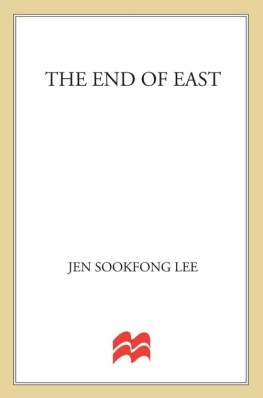
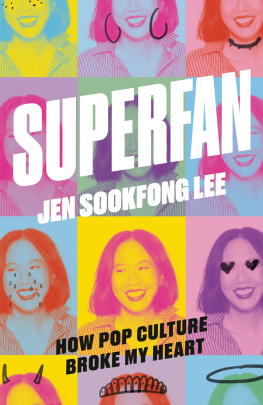



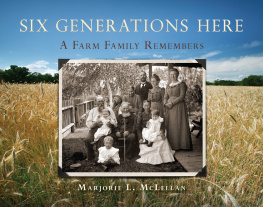
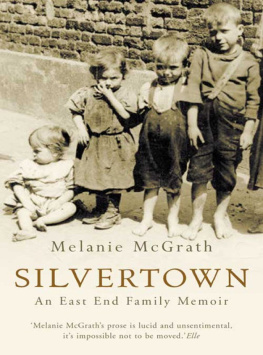








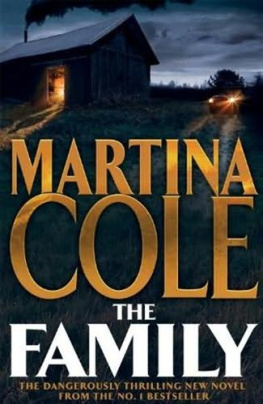
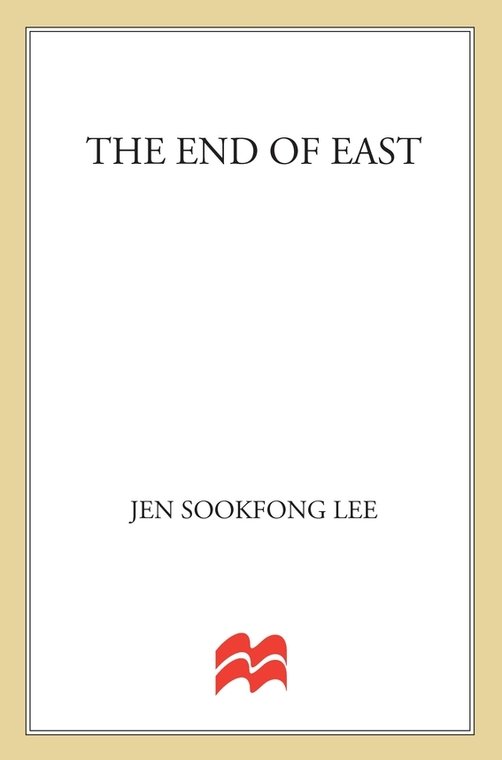
 It is time, my mother says as she pulls me from the cab, to run that old-man smell out of my house.
It is time, my mother says as she pulls me from the cab, to run that old-man smell out of my house.